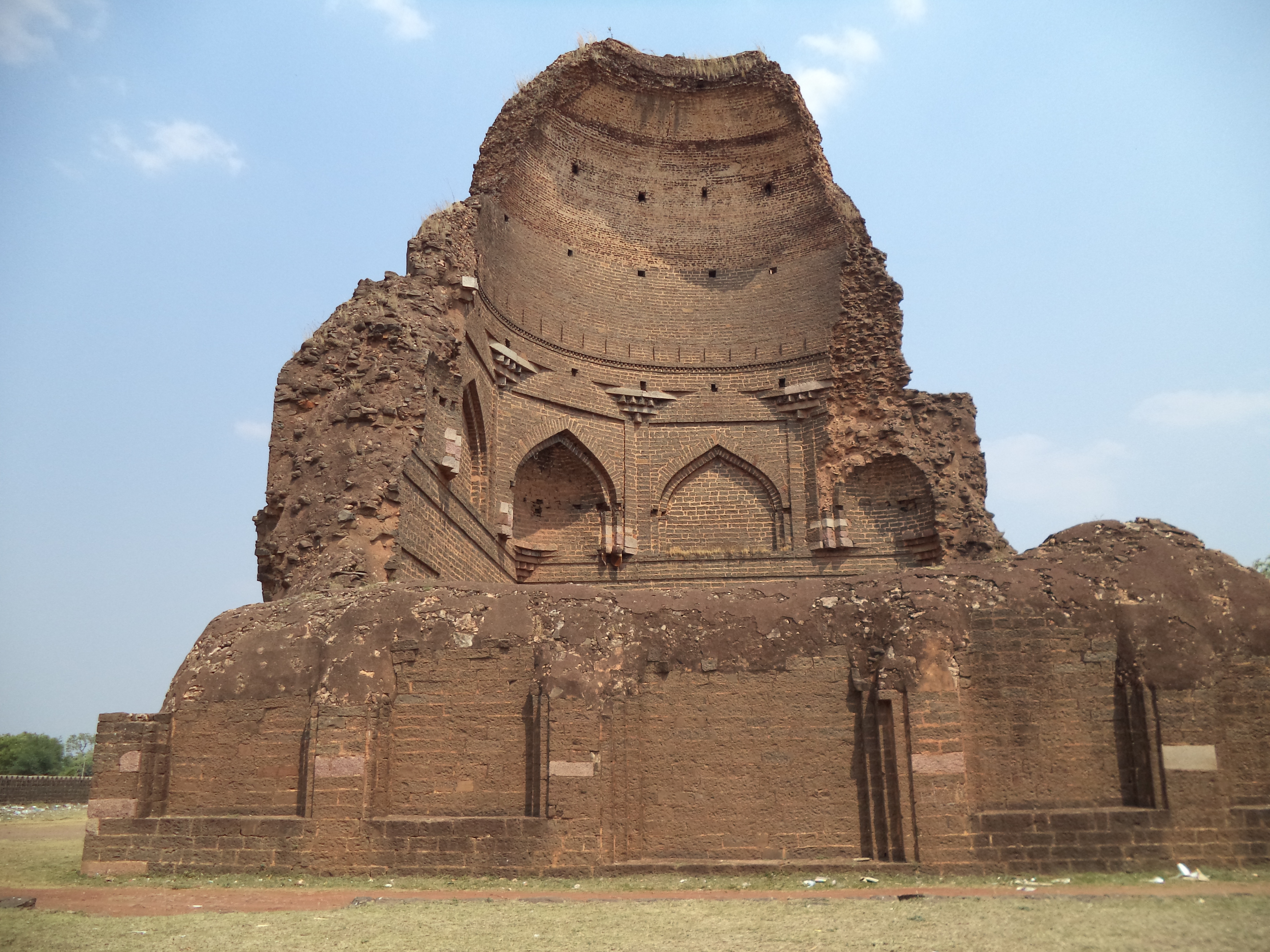Humayun Shah on:
[Wikipedia]
[Google]
[Amazon]
Alauddin Humayun Shah Bahmani was the sultan of the
 His tomb is located within the
His tomb is located within the
Bahmani Sultanate
The Bahmani Kingdom or the Bahmani Sultanate was a late medieval Persianate kingdom that ruled the Deccan plateau in India. The first independent Muslim sultanate of the Deccan, the Bahmani Kingdom came to power in 1347 during the rebellio ...
, who reigned between 1458 and 1461. Also known as Humayun Shah ''Zalim'' (), he is described as a cruel ruler, known for executing people in torturous ways.
Biography
Humayun was the eldest son of Alau'd-din Ahmad Shah. Upon Alauddin's death, a group of noblemen, including Saif Khan, Mallu Khan, and Shah Habibullah installed Hasan Khan, Humayun's younger brother as king. Humayun, along with his personal guard of eighty horsemen managed to secure the throne. Saif Khan was executed, Mallu Khan fled to the Carnatic, and Hasan Khan and Shah Habibullah were imprisoned. Upon his enthronement, Humayun appointedMahmud Gawan
Mahmud Gawan (1411 – 5 April 1481) was a Persian statesman who served as the chief minister, or Peshwa of the Bahmani Sultanate in the Deccan plateau in India from 1458 and ''de facto'' ruler as prime minister from 1466 until his death in 1481. ...
lieutenant of the kingdom and governor of Bijapur, ennobling him with the title of ''Malik-ut-Tujjar''.
Sikandar Khan, a cousin of Humayun, was given charge of Telangana. Still dissatisfied by the appointment, he began a rebellion, supported by his father Jalal Khan and local Velama
Velama are a Hindu caste found mainly in Telangana and AP. The term "Velama" was first recorded for the community in a 17th century inscription. The text "Velugoti Vari Vamsavali" documents the medieval military history of Velama rulers.
Orig ...
chiefs. The rebels began a march towards Golconda
Golconda is a fortified citadel and ruined city located on the western outskirts of Hyderabad, Telangana, India. The fort was originally built by Kakatiya ruler Pratāparudra in the 11th century out of mud walls. It was ceded to the Bahmani ...
. Humayun proceeded to meet the rebels, and offered terms of peace to Sikandar, which were refused. Sikandar was killed in the ensuing battle, and his army defeated. While Humayun was in Telangana
Telangana is a States and union territories of India, state in India situated in the Southern India, south-central part of the Indian subcontinent on the high Deccan Plateau. It is the List of states and union territories of India by area, ele ...
, Hasan Khan was released from prison by means of fraud. Hasan Khan proclaimed himself the king at Bir, but was defeated by Humayun's forces and Hasan fled towards Vijayanagara
Vijayanagara () is a city located in Vijayanagara district of Karnataka state in India.Vijayanagara
. However, he was imprisoned by Siraj Khan Junaidi and sent to the capital. In 1460, Hasan and his party were brought to Bidar. It is at this time that the cruel punishments of Humayun were described—Hasan Khan was thrown before a tiger, which proceeded to maul and devour him, while some of his followers were cast into boiling cauldrons. Elephants and other wild animals were released upon others.
Humayun died, either naturally, or was killed by a maid-servant in his sleep on 1 September 1461. He was succeeded by his son Nizamuddin. His tomb is located within the
His tomb is located within the Bahmani tombs
The Bahmani tombs complex at Bidar is the necropolis of the Bahmani dynasty, located in Bidar, in the Indian state of Karnataka.
Built during the 15th and 16th centuries, the tombs are an example of a distinct Indo-Islamic architecture, Indo-Isl ...
complex, and is partially collapsed. According to legend, the tomb split open when Humayun's body was interred, thus signifying that god refused protection for his remains. In fact, the damage to the tomb is due to a lightning strike in the 19th century. He had at least two sons: Nizam-Ud-Din Ahmad III and Muhammad Shah III Lashkari.
Cruelty
Firishta
Firishta or Ferešte (), full name Muhammad Qasim Hindu Shah Astarabadi (), was a Persian historian, who later settled in India and served the Deccan Sultans as their court historian. He was born in 1570 and died between 1611 and 1623.
Life
F ...
describes Humayun as an especially cruel figure, with the sobriquet ''Zalim''. According to modern scholars such as Haroon Khan Sherwani and Ghulam Yazdani
Ghulam Yazdani, OBE (22 March 1885 – 13 November 1962) was an Indian archaeologist who was one of the founders of the Archaeological Department during the colonial era reign of Nizam of Hyderabad. He also edited the Arabic and Persian Supple ...
, the accounts of Humayun's cruelty have been exaggerated. Sherwani described him as a ruler of the "ordinary Bahmani type", albeit a strict disciplinarian.
References
{{Bahmani Sultanate Bahmani sultans 1461 deaths